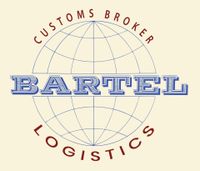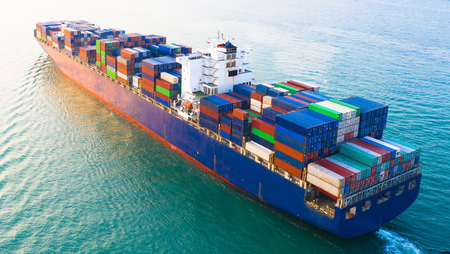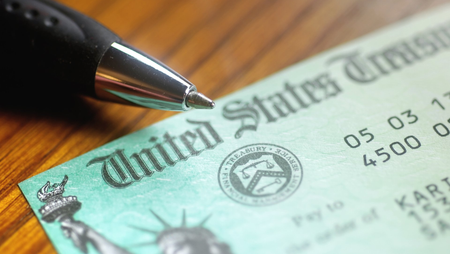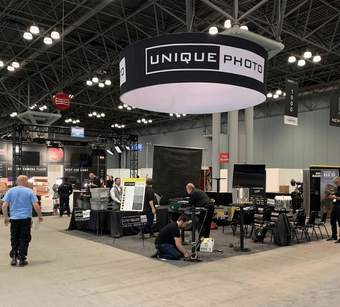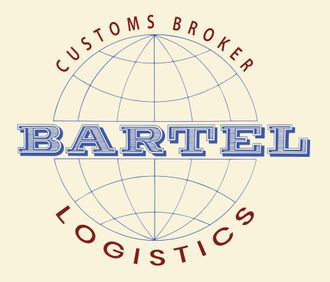60+ Years in Business
International Logistics Services
We are a licensed customs brokerage firm and have been located in the New York area for over six decades. We are fully-certified nationwide customhouse brokers and freight forwarders involved in all aspects of international trade and documentation.
CUSTOMS BROKERAGE
CONTACT BARTEL SHIPPING
Information On
CUSTOMS BROKERAGE AND CLEARANCE
Import Security Filing
Frequent shippers can import into the U.S.A. without purchasing a bond for every shipment, discounted rates available. Bartel Shipping can assist your company in obtaining a continuous bond today.
Continuous Bonds Shipping
Bartel Shipping assists its clients in reimbursement of duty paid on goods entered into the U.S.A., then re-exported to a foreign country.
Not Sure Which Solution Fits Your Business Needs?
Our Services
Customs Clearance all Ports of Entry into the U.S.A. We clear freight at all ocean ports, airports, and border ports. We will track and coordinate all phases of the customs clearance process.
Customs Entries
Transportation and Export: Goods shipped under U.S. Customs bond from a U.S. Port of Entry to a second U.S. Customs port for export to a third country.
Warehouse Entry
Vessel Transportation and Export: This is a specialized U.S. Customs bond intended for a foreign vessel which will be immediately leaving the USA.
Import Security Filing
This entry is for goods entering the USA under bond to temporarily store goods in a warehouse without paying duties and/or taxes.
FDA Prior Notice
This type of entry is performed for shipments valued under $2,000 USD. (Some commodities are restricted to on an informal entry, regardless of the value.)
Industries Served

Slide title
Food
Button
Slide title
Confectionaries
Button
Slide title
Alchohol/Beverages
Button
Slide title
Electronics
Button
Clients
US Customs Brokerage Firm
Ocean or Air we are your one-stop point of contact for dealing with truckers, railroads, warehouses, steamship lines, airlines, and government authorities such as U.S. Customs and the Food & Drug Administration Customs Clearance all Ports of Entry into the U.S.A.-We clear freight at all ocean ports, airports, and border ports. We will track and coordinate all phases of the customs clearance process.

This is due to their excellent service, competitive pricing and customer support. It is thoroughly refreshing get such a personal touch
S. Guarino
The Topps Company
Button
LATEST FROM BLOG
Logistics News

By Chris Bartel
•
January 13, 2020
ISF, or Importer Security Filing, is a United States regulation for importing goods. ISF may also be known as 10+2. An ISF worksheet must be issued to an importer’s U.S. customs broker in order to assure that imported goods meet regulations. This form must reach the customs broker 48 hours before imported goods ship to the U.S. An ISF form must also include these elements to be filled out properly: Seller name and address Buyer name and address Manufacturer / supplier name and address “Ship to” name and address Consolidator name and address Country of origin Ultimate Consignee EIN or IRS number I mporter of record EIN or IRS number Container stuffing location HTSUS number House bill of lading number Master bill of lading number What Happens if Guidelines Aren’t Met? If an ISF doesn’t reach a U.S. customs broker 48 hours before shipping time or doesn’t have the required elements, there is a possibility of fines and penalties. Depending on the violation, the fine or penalty will become more severe for failing to meet these requirements. Due to increased instances of violations, Customs and Border Protection (CBP) has eliminated some of the previous protections for importers who fail to meet ISF. No longer are importers granted: The three strikes rule Consideration of liquidated damages by CBP Extended issuance for liquidated damages (must be issued by port before 90 days) Fines and Penalties As well as less lenience by the CBP, importers may accrue fines and penalties for not meeting ISF requirements. Per shipment fines can reach up to a maximum of $10,000. These fines include: Not filing an ISF: $5,000 per shipment Late filing of ISF: $5,000 per shipment Not withdrawing an ISF: $5,000 per shipment Non-matching bill of lading: $5,000 per shipment Incomplete form: $5,000 per shipment Options to Reduce Penalties Fortunately for many importers, the CBP has allowed for reduced penalties under certain circumstances. Many first-time offenders can reduce their fine between $1,000 and $2,000. However, an importer’s circumstances will heavily influence whether they get a reduction or not and the extent of that reduction. Another point to note is that fines will never be reduced if CBP determines that laws were intentionally broken or an importer purposely didn’t file an ISF on time.
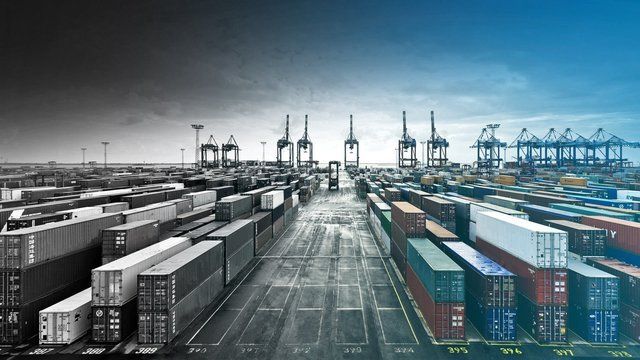
By Chris Bartel
•
January 10, 2020
The U.S. considers imported goods to be products, and sometimes services, that are brought from one jurisdiction into another. Imported goods must cross the national border of a country. The federal regulatory body that oversees imported goods and their transactions in the U.S. is Customs and Border Protection, or CBP. Importing goods into the U.S. may seem like a difficult task because of all the rules and regulations. However, importing is not as difficult as it seems. There are a few basic guidelines you must follow in order to import goods appropriately. First Steps to Importing One of the very first steps of becoming an importer is to consider whether or not you will need a permit or license to import your goods. The best way to do this is to check the guidelines of the CBP on their website . It’s important to note that even though CBP may not require an importer to have a license or permit to import certain goods, other agencies may require them. You may also need a local or state license as well. Finally, we will need to fill out CBP entry forms within 15 days of the day your imports will arrive. These forms will require your IRS business registration number, or your social security number if you don’t own a business. Regulations There are a few regulations you must become familiar with before importing goods into the U.S. One of these regulations set out by the CBP is Importer Security Filing (ISF). ISF may also be known as “10+2” as well. ISF is only required for ocean imports. It requires an importer to file a form with CBP 24 hours before imported goods leave their last origin point. Failure to do so could require the imported to pay up to $10,000 in fines per shipment. Is There an Easier Way to Import Goods? For first time importers, there is a way to take the stress out of importing goods. Many first time importers hire a U.S. customs broker that will handle all the paperwork and filing needed to import goods. U.S. custom brokers guide an importer through the importing process, including regulations, customs laws, and tariffs. If you’re a first time importer, contact us for our website for more help .
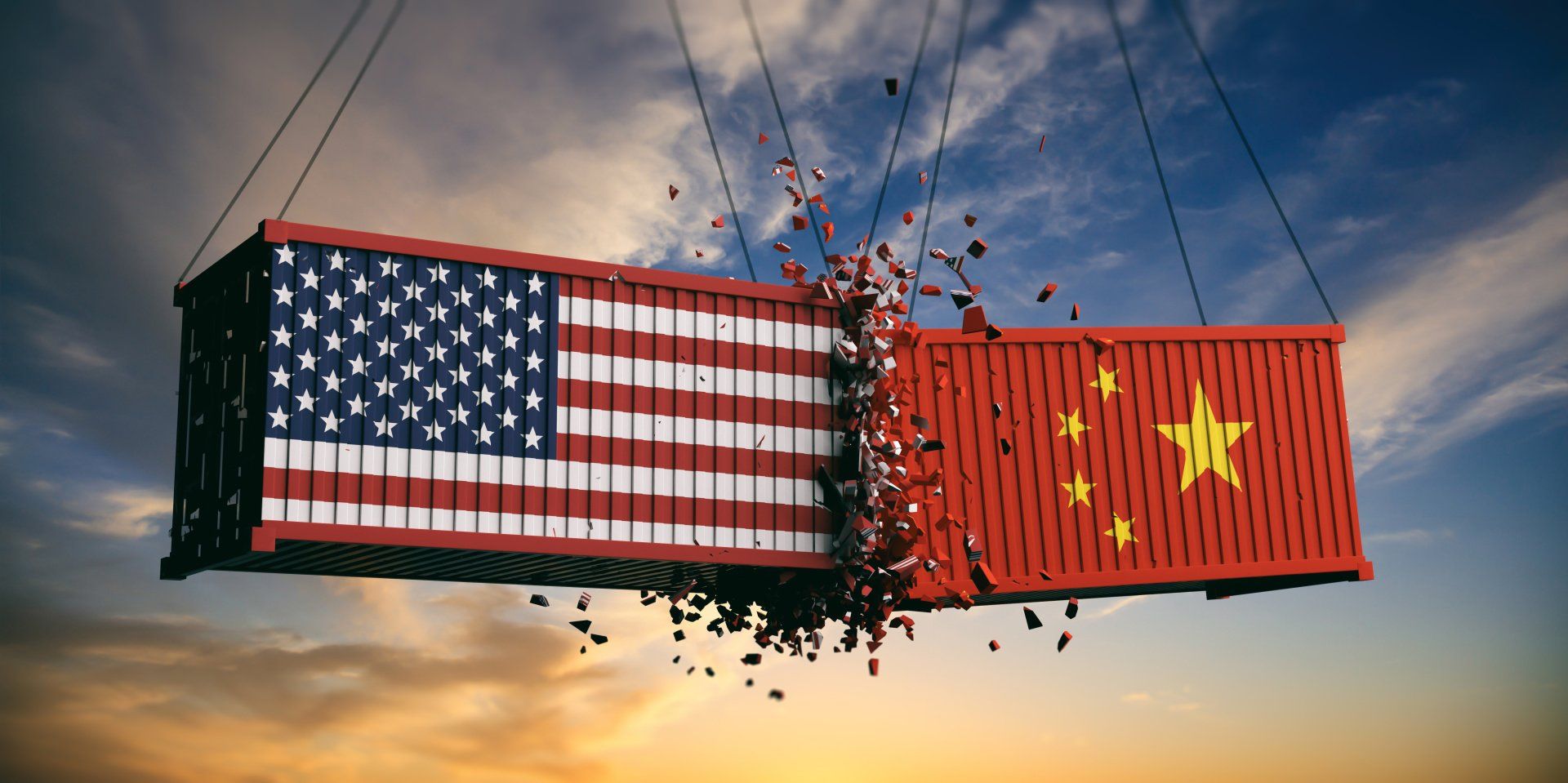
By Chris Bartel
•
November 14, 2019
As an importer, you constantly need to check for updates in importing laws and regulations. Having good knowledge of the laws and regulations surrounding your imports is important to understand the prices of your goods. One of the newer regulations recently changed is Section 301C. What is Section 301? Section 301 is part of the Trade Act, which came to be in 1974. It empowers the United States to partake in and enforce trade agreements with foreign countries. 301C allows the U.S. to make trade sanctions with countries that don’t follow trade agreements or countries that engage in unfair trade practices. Most of the time, the way the U.S. enforces Section 301 is to raise the tariffs on imported goods from the offending country. This helps the U.S. recoup money from broken trade agreements. 301 allows the U.S. to place varying tariffs on different products. This list of products is known as the retaliation list. These products are typically chosen by the current president of the United States and is influenced by their trade policy. Section 301 covers a wide variety of products, which can be found on the OTNA retaliations page here . What are the Recent Changes? Section 301 has seen many revisions to its retaliation list. Most recently, the retaliations list has been updated to include products from China. This update is called Section 301C. This was partly due to a finding by the U.S. Trade Representative, which found that China had undermined U.S. businesses who operate in China. Because of this finding, the President of the United States has published a trade action to increase tariffs of certain Chinese goods up to 25%. These goods can be found on the OTNA website or contact us at info@bartelshipping.com for further information. Though trade negations are still continuing, importers can expect to find some of their goods on this growing list. How Do Goods on the Retaliation List Affect Importers? If you import a good that is on the retaliation list, there are a few things you need to know. First, importers can expect their goods’ price to increase due to tariffs. Second, importers can expect tariff rates to fluctuate until the United States and China come to a final agreement. Third, importers need to stay aware of the retaliations list because their products may make their way on to it, especially if they’re imported from China. A constantly changing retaliation list may be difficult to keep up with. For that reason, a U.S. customs broker can help you. If you’re interested in learning more about a customs broker for your imports, click here .
SITEMAP
GET IN TOUCH
Address: 430 Springfield Avenue
Suite 201, Berkeley Heights, NJ 07922
Email: info@bartelshipping.com
Tel : 908-608-7907
Fax: 908-286-0301
Toll-Free: 800-339-5482
Fastest Service:
CELL: 908-608-7907
Chris Bartel, President
cbartel@bartelshipping.com
RELIABLE SINCE 1959!
Bartel Shipping is one the oldest established Custom House Broker in New York. Three generations of Bartel's have successfully owned and operated this Customs Brokerage firm since 1959. Key members of our staff are licensed brokers. All members of our staff are specialist involved in all aspects of International Trade documentation.
Copyright © 2024 | All Rights Reserved | Designed by N ew Wave Digital Designs
